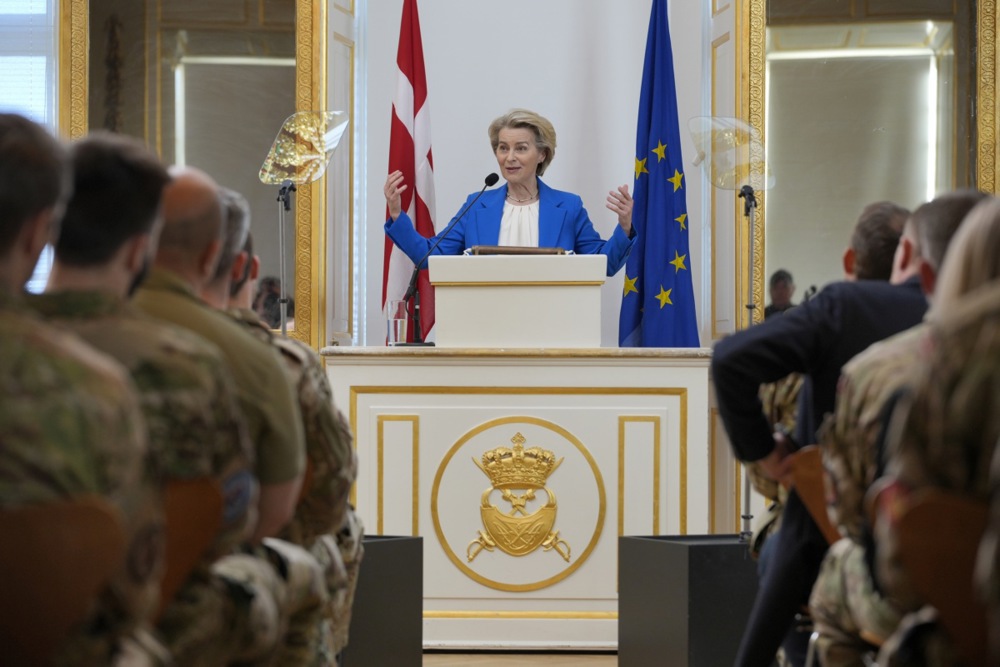For the past 20 years, Denmark has been without a new permanent surface-to-air system but now, in light of the Russian war in Ukraine, the acquisition process has been accelerated.
Despite a cheap and allegedly fast Israeli solution, the Danish Government and a defence agreement coalition in the Danish parliament have narrowed the options down to two others.
Those were a French-Italian collaboration, Thales and MBDA and their SAMP/T-NG weapon system, alongside the UUS-produced Patriot missile system.
“If I were a betting man, I would place my money on Denmark buying European defence systems,” Hans Peter Michaelsen, an independent Danish defence analyst who has followed the process closely, told Brussels Signal on March 19.
Recently, the process has gained attention after the Danish parliament’s defence committee decided to follow a recommendation from an agency under its Ministry of Defence, which is responsible for defence acquisition and logistics.
The decision excluded air defence systems that were not pre-approved by NATO. In reality, this prohibited Israeli weapons producers, among others, from participating in the procurement of Denmark’s permanent surface-to-air defence system.
Yet full deployment of a permanent defence system, including both long-range and short-range missiles, was not expected until 2032. In the meantime, the Ministry of Defence has tasked its agency with acquiring an interim solution.
According to the Danish defence news outlet OLFI, the Israeli weapons producer Israel Aerospace Industries (IAI) could potentially deliver this temporary solution. IAI claimed it could provide a defence system capable of covering most of Denmark “tomorrow”.
Moreover, the price of the Israeli system, approximately €600 million, was well below the Danish procurement budget of around €3.35 billion, OLFI wrote. Additionally, Germany, Finland and Slovakia have already purchased Israeli-produced defence systems.
In February, the Danish company Terma boasted of supplying Slovakia with advanced command-and-control software, while also ensuring interoperability with NATO’s air-defence architecture.
Denmark has traditionally prioritised defence systems that were interoperable with NATO. Part of the reason was the country’s goal to meet NATO’s capability targets.
Lieutenant Colonel Thomas Galasz Nielsen, head of the Institute for Military Technology at the Danish Defence Academy, said: “The easy option when buying an air defence system is to buy something that is already approved in the NATO air defence structure. It’s an uphill battle to purchase a system that isn’t already in favour.
“The procedures for getting it approved can be lengthy, so it’s not an obvious choice in a Danish context where acquisition speed is necessary.”
Furthermore, rumours surrounding the decision to exclude Israeli producers and other suppliers have suggested that a major concern was the lack of experience against advanced Russian threats.
As highlighted by multiple sources speaking to Brussels Signal, another significant factor in the procurement process was speed of procurement.
“I expect Denmark to choose European, partly because it will ensure faster delivery. There is an enormous queue for the Patriot missile system,” said Michaelsen.
“It would also be a strong signal from Denmark that we support the European defence industry, which needs to ramp up.”
He also pointed to the substantial cost of the US Patriot system and uncertainty surrounding the US as relevant factors.
The exact prices of the two different missile systems were not revealed to the public.
Despite a decades-long dedication to US weapons systems, strengthening the European arms industry has become an increasingly important priority in Denmark, according to Jakob Linnet Schmidt, PhD Candidate at the Danish Institute for International Studies and a specialist in Danish security and defence policy.
He did emphasise, though, that the Danish Government had not ruled out investing in US defence systems. The Danish Minister of Defence and Deputy Prime Minister Troels Lund Poulsen recently brushed off pressure from other Danish parties to stop buying US weapons.
That could partly be explained by a desire to avoid provoking the Trump administration, according to Schmidt.
“From a political standpoint, every effort is being made to avoid fanning the embers that might still be in the fire and reigniting it,” he said.
He highlighted that speed and interoperability with NATO were key factors for Denmark’s future surface-to-air defence system.
The Danish Government has yet to comment on whether the interim defence system could be produced by Israeli companies.





